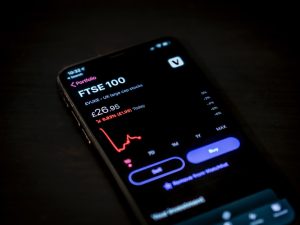The Role of Brokers of Forex in the Global Currency Market
The global currency market, also known as the Forex market, is the largest and most liquid financial market in the world. It operates 24 hours a day, five days a week, and has a daily turnover of trillions of dollars. This market allows individuals, companies, and institutions to buy and sell currencies, making it an essential part of international trade and investment.
At the heart of the Forex market are the brokers who facilitate currency trading. These brokers are financial intermediaries that connect traders to the market, providing them with access to various currency pairs and executing their trades. Understanding the role of brokers in the Forex market is crucial for anyone looking to participate in currency trading.
First and foremost, brokers act as the link between traders and the Forex market. They provide traders with a trading platform, which is a software that allows traders to view real-time price quotes, place orders, and manage their trading accounts. The trading platform is an essential tool for traders, as it provides them with the necessary information and tools to analyze the market and make informed trading decisions.
Brokers also provide traders with leverage, which is a mechanism that allows traders to control larger positions in the market with a smaller amount of capital. Leverage can amplify both profits and losses, making it a double-edged sword. While it can increase potential returns, it also increases the risk of losing money. Brokers determine the amount of leverage they offer to their clients and usually require traders to maintain a certain level of margin in their accounts to cover potential losses.
Another important role of brokers in the Forex market is providing liquidity. Liquidity refers to the ease with which an asset can be bought or sold without causing a significant change in its price. The Forex market is highly liquid due to its large size and the number of participants. Brokers contribute to this liquidity by matching buy and sell orders from their clients or offsetting these orders in the interbank market, where large financial institutions trade currencies. This ensures that traders can enter and exit positions at any time, even in volatile market conditions.
Additionally, brokers offer a range of services and tools to help traders navigate the Forex market. These services may include educational resources, such as webinars and tutorials, to help traders understand the fundamentals of currency trading. Brokers may also provide market analysis and research reports to help traders make informed trading decisions. Some brokers even offer automated trading systems, known as expert advisors, which execute trades based on predefined trading strategies.
Furthermore, brokers play a crucial role in ensuring the security and integrity of the Forex market. They are regulated by financial authorities in their respective jurisdictions, which impose strict rules and regulations to protect traders’ funds and maintain market stability. Regulated brokers are required to segregate client funds from their own operational funds, ensuring that clients’ money is protected in the event of the broker’s insolvency. They are also required to adhere to strict anti-money laundering and know-your-customer procedures to prevent illegal activities.
In conclusion, brokers are essential players in the global currency market. They provide traders with access to the Forex market, facilitate trades, offer leverage, contribute to market liquidity, and provide a range of services and tools to support traders. However, it is important for traders to choose reputable and regulated brokers to ensure the safety of their funds and the integrity of their trading activities.





